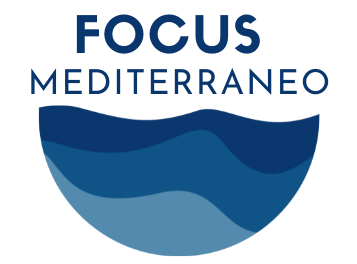In the austere silence of the Vatican halls, a new, almost sacred playing field is slowly being prepared. Ukraine, exhausted by more than two years of war, insists on a face-to-face meeting between Volodymyr Zelensky and Vladimir Putin.
The latest round of negotiations in Istanbul has revived the hope — never completely extinguished — that the end of the conflict could come from a direct conversation between the two leaders. “Putin is the only one who decides in Russia,” a Ukrainian diplomatic source told AFP. And if it is true that only he can put an end to the aggression, then Zelensky is ready to risk everything in a personal confrontation. But where? And under whose arbitration?
To understand the meaning of this dynamic, it is worth resorting to a sports metaphor: that of tennis, a sport that more than others recalls face-to-face contact, respect for the rules, the importance of the referee, and the need for a neutral and defined field.
The match that doesn’t find a pitch
Like two professional tennis players ready to play a final destined to go down in the history books, Kiev and Moscow find themselves in a surreal situation: there is still no court on which to play the diplomatic match. Every attempt to start negotiations has so far been dashed against the wall of intransigence, suspicion, or propaganda. The proposed mediators — from Turkey to China, via Switzerland — have not fully convinced either side, nor offered the necessary guarantees of neutrality or influence.
And here a new protagonist enters the scene: Leo XIV. He continues to appeal for peace on every public occasion, but, above all, he has given concrete signals of wanting to offer the Holy See as a physical and symbolic space for a possible dialogue.
Why the Vatican? Because, like in tennis, you need an impartial umpire, able to sit high up to have a clear view of the entire court. An umpire who has perfect knowledge of the rules — moral and geopolitical — and is perceived as equidistant, even when he calls out players for disturbances or violations.
In tennis, if a player inadvertently disturbs his opponent—for example, by dropping a ball from his pocket—the umpire stops play and the point is replayed. But if the disturbance is deliberate, the point is lost. Here’s the crux of the matter: Too many times in recent years, both players have generated “disturbances,” some perhaps inadvertent, some clearly intended.
Propaganda, manipulation of information, violation of humanitarian corridors, use of nuclear threats, bombing of civilian infrastructure: these are not just off-field shots, they are real fouls that would require — to stay with the metaphor — warnings and loss of points.
The Pope, today in excellent health and in full function, can represent that referee who observes, intervenes, calls and – if necessary – sanctions morally. His message has never been ambiguous: war is a defeat for everyone. But so far, no one has really wanted to recognize the legitimacy of this referee. Too influential for some, too moral for others, too “Western” or “spiritual” for those who only look at material interests.
The Holy See as a playing field
Yet the Vatican offers something that no other place in the world can: a symbolically neutral space, uncompromised by economic or military ambitions. A pure playing field, where the only goal is peace.
It is important to underline that in recent history, the Vatican has already hosted delicate negotiations: just think of the role it played in the reopening of relations between Cuba and the United States.
Vatican diplomacy, silent but tireless, often works away from the spotlight, but is guided by a logic that does not bend to the logic of power.
Today, Ukraine seems ready to enter this court. They are serving to start the rally, waiting for Moscow to respond. Putin, however, remains at the back of the court, undecided whether to take up his racket or abandon the match. And in the meantime, the world audience waits, suspended between hope and disillusionment.
Conclusion: do you play or give up?
War is, after all, the absence of rules. It is the moment when the field dissolves and players hit each other not with rackets but with weapons. The Ukrainian attempt to bring everything back to a regulated, mediated, arbitrated confrontation is therefore an act of rationality and courage.
If Zelensky and Putin were to actually meet in the Vatican, it would be a turning point. It would not mean the immediate end of the war, but it would mark the beginning of a new game: that of diplomacy, of words, of compromise.
And the Pope, perched high in his referee’s chair, would finally have the opportunity to do what many world leaders have failed — or have not wanted — to do: enforce the rules of human coexistence.
For now, the field is ready. The referee is on his chair. We are waiting for the players
Marco Baratto

